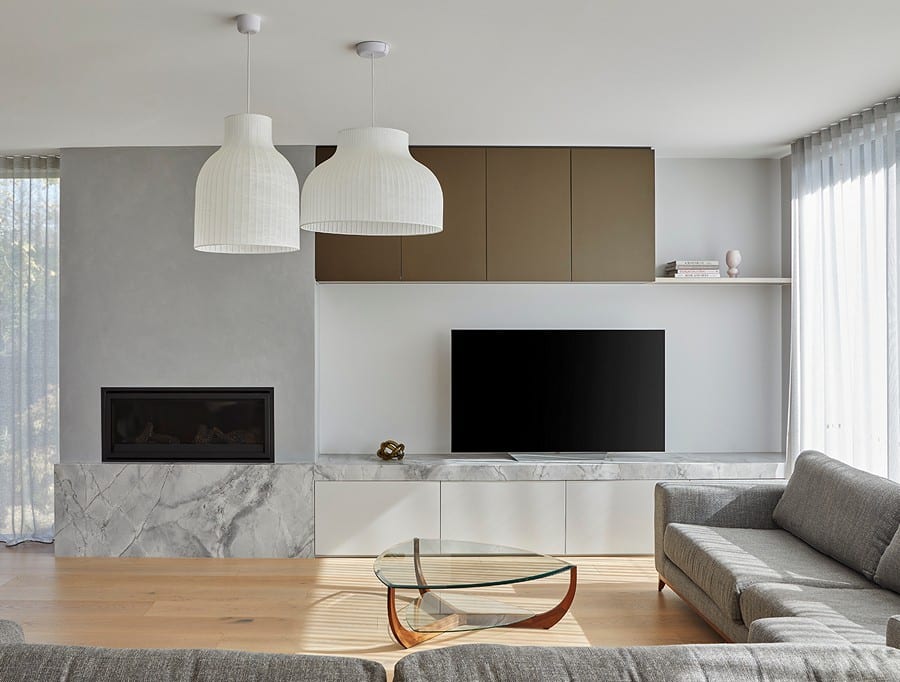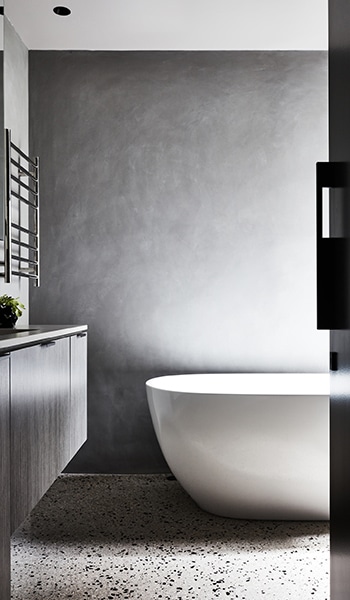Building your new home is an exciting time, but it is understandable if you’re experiencing feelings of trepidation. Especially when it comes to budgeting for your project. The type of contract you and your builder agree to can have a significant effect on both your contingency allowance, and the final price. For most people, entering a building contract is one of the biggest single financial decisions they will make. It is worth having an understanding of the contracts available.
Typically, there are two types of contracts: Fixed Price and Cost Plus. Each has their own place in the industry, but generally a project will be suited to one or the other.
Fixed price
A Fixed Price contract requires the final figure to be calculated from careful and thorough analysis of the design and site conditions of your project. This figure includes the builders margin, and is calculated before works begin. Although the contract is referred to as a “fixed price” contract, there are some elements that are subject to change, and in some cases may not be included at all. This doesn’t necessarily mean your builder is being deceptive, building contracts can have exclusions that are fair, but you need to know what they are and why. You should not be afraid to ask your builder what has been excluded and why, or how they have estimated allowances.
We have found that the main sources of additional charges are actually related to clients actions rather than builders omissions. These being a lack of documentation, and clients requesting additional work.
In simple terms, for your builder to give you an accurate fixed price, you must give them accurate documentation and clearly communicate the scope of works.
If your fixtures and finishes are not documented the builder will need to make assumptions on these, which may not be in line with your expectations or budget. If your plans do not clearly cover all the intended works, your builder will likely unknowingly omit these from your fixed price. Further to this, having an all inclusive and clear scope of works before construction commences, is more cost effective than adding items during the build.
Contrary to popular belief, not all builders are interested in upselling to their clients. Nor do they base their business model on being able to charge clients for extras that should have been included in their contract. Admittedly there may be some who do this, but we do not subscribe to this approach. Making changes during a build is disruptive and time consuming. We take care to include all possible costs required to complete a project to an appropriate level through our Detailed Cost Analysis process.
When it comes to Fixed Price contract allowances (Prime costs PC and provisional sums PS), a good builder should spend time with you to understand what you envisage for your project. Taking these things into account then allows your builder to include appropriate estimates as part of the contract based on a holistic view of your building project.
With your Fixed Price contract, it’s important to discuss a provision for any changes upfront with your builder. While by their nature Fixed Price contracts assumes no deviation from the plan. There may be times when necessary, changes arise, such as upgrading appliances, fixtures, or utility systems. An honest working relationship with your builder will allow you to discuss this openly at the outset so you can feel confident of the outcome if a change does arise.
Cost plus
Cost Plus contracts is where your builder adds a margin to each element of the build as it is incurred. This will include everything from permit applications to the final clean. The total is then billed to you, usually monthly. The total cost of the job ends up being calculated in basically the same way as fixed price. But with a key difference that with fixed price the builder must estimate, and is locked into, the cost of the item at contract signing. Whereas with cost plus, the cost to the client is only truly known once the item is purchased during the build. The cost plus contract must include an estimate of the total costs, this is where problems can occur. Homes are becoming increasingly complex, with a dizzying array of finishes, cladding types, and construction methods. There is significant risk that unless the builder has completed a very similar home recently, that the contracts estimated figure will be insufficient.
If the project involves an unclear scope of works, there are no specifications, or costs cannot be confirmed until after demolition and further exploratory work can be completed then cost plus may be suitable, and beneficial to the client. But be aware your total cost is based on an estimate, not a calculated fixed figure.
There is a genuine need for cost plus contracts in the industry, but they should not be employed simply because the builder chooses not to cost the project. We have used cost plus on a number of projects where it was suitable, and was successful, for all parties. But we prefer and encourage our clients to use fixed price.
Contingency
As a guide when using Fixed price contracts we would suggest clients undertaking renovations to allow for 8% contingency, and new homes 5%. This will vary depending on the project and site conditions. If using Cost Plus we would suggest adding 10% to these figures. This contingency is only for builders’ variations, not for client driven changes. Bear in mind that most variations are client driven, so if you feel the specifications are lower than those you are likely to select, it would be best to advise your builder early so the project budget can be as accurate as possible. We find that when clients get into budgeting issues, it is usually due to upgrading their specifications, not from unforeseen construction issues.
In the current climate with increasing costs for materials and labour, it’s important to set your budget together with your builder so that both of you understand how your money will be spent.
The most important thing for you is to fully understand whichever contract you agree to so you can enjoy the experience of building your dream home. The journey takes considerable time so it’s vital that you feel rapport with your builder to develop a trusting relationship.
At Sheridan Building, we work closely with every client to ensure they are happy with their dream home. If you’re looking to build yours, we’d love to hear from you. Contact us today and let’s see how we can help you.


